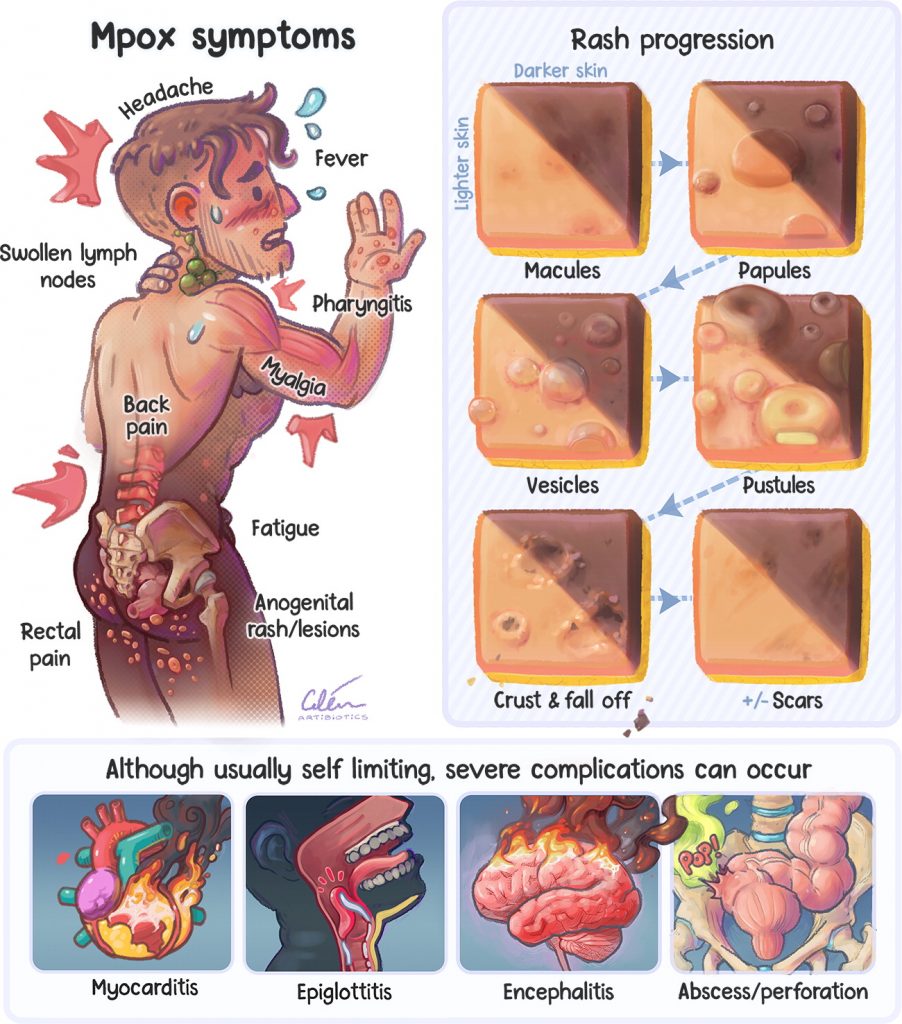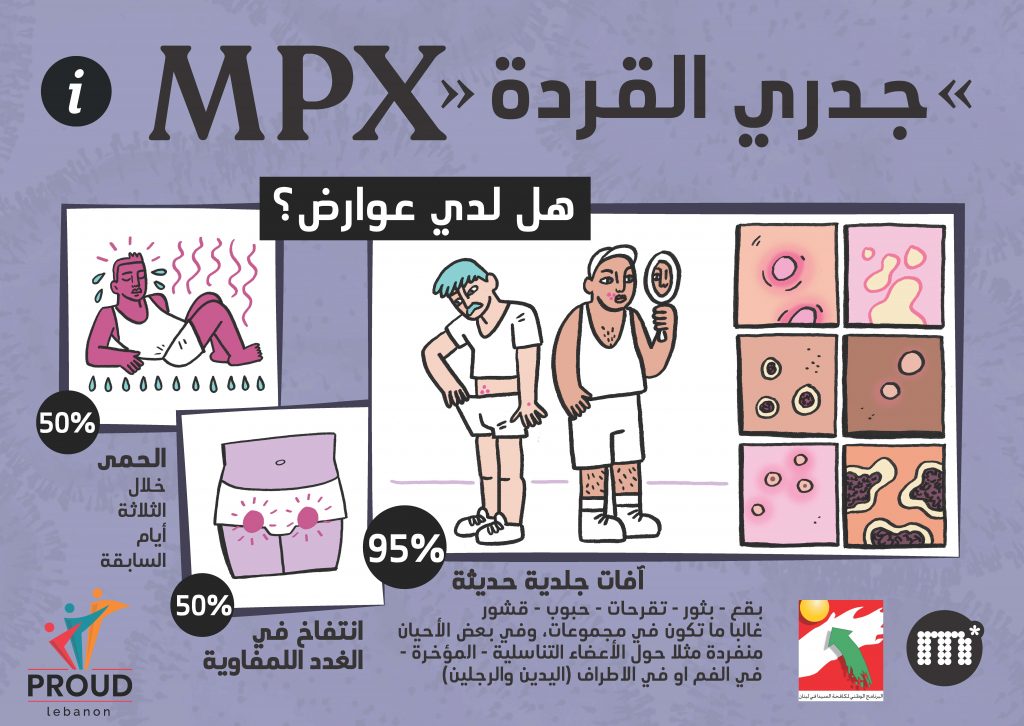What do you know about Mpox?

Mpox is a rare viral disease that is similar to human smallpox, but less severe. It is primarily found in Central and West Africa, but cases have been reported in other parts of the world as well. The virus is transmitted to humans through contact with infected animals, such as monkeys, rodents, rats and squirrels.
The symptoms of Mpox typically appear within 5 to 21 days of exposure to the virus. The initial symptoms include fever, headache, muscle aches, and fatigue. This is followed by the appearance of a rash that starts on the face and then spreads to other parts of the body. The rash progresses to form fluid-filled blisters that eventually crust over and fall off. While most cases are mild and resolve on their own, severe cases can lead to complications such as pneumonia, encephalitis (inflammation of the brain) or even death.
The risk of contracting Mpox is low for most people, the risk increases with MSM groups as well as those who work with animals or travel to areas where the virus is prevalent are at higher risk. It is important to take precautions such as wearing protective clothing and avoiding contact with wild animals.
Most of the time Mpox infections resolve spontaneously, while for severe cases treatment with anti-virals exists, and it will shortly be available in Lebanon.
A previous vaccination for smallpox might give some protection against Mpox infection.
In recent years, there have been several outbreaks of Mpox outside of Africa, including in the United States and the United Kingdom. While these outbreaks have been contained, they serve as a reminder of the importance of monitoring and controlling infectious diseases.
Mpox and Sex
In humans, Mpox can be transmitted through direct contact with bodily fluids or skin lesions of an infected individual. This includes close physical contact such as hugging, kissing, or sexual contact. It can also be spread through contact with objects contaminated with the virus, such as bedding or clothing.
To prevent the spread of Mpox, it is important to avoid close contact with infected individuals, this includes practising safe sex, avoiding contact with infected partner/s or his/her or their bodily fluids is recommended. If you suspect you may have been exposed to Mpox, seek medical attention immediately to receive appropriate treatment and prevent further spread of the virus.
You could contact Proud Lebanon for this type of support.
Mpox and HIV
Mpox and HIV are two separate viral diseases that can both be transmitted through bodily fluids. However, there is no known direct link between the two viruses.
People living with HIV may be at a higher risk of contracting Mpox if they come into contact with infected animals or people. This is because HIV weakens the immune system, making it harder for the body to fight off infections. Additionally, people living with HIV may experience more severe symptoms of Mpox if they do become infected.
It is important for people living with HIV to take extra precautions to protect themselves from Mpox and other infectious diseases. This first includes taking their ART regularly as prescribed, avoiding contact with infected individuals or animals, avoiding sex with suspected or infected Mpox cases, and seeking medical attention immediately if they suspect they have been exposed to the virus.
In areas where Mpox is endemic, healthcare providers may need to take extra precautions during the provision of medical support for people suspected with Mpox. This may include wearing personal protective equipment and taking additional infection control measures to prevent the spread of the virus.
Overall, while there is no direct link between Mpox and HIV, people living with HIV should take extra precautions to protect themselves from infectious diseases, including Mpox.
Proud Lebanon and Mpox
Proud Lebanon is a non-governmental organization that provides medical services and support to the LGBTQ+ community and other marginalized populations in Lebanon. In addition to our HIV prevention and treatment services, We also offer monkeypox testing and support for those affected by the virus in partnership with the MOPH and the National Aids Control Program.

Our medical services include HIV testing and counselling, antiretroviral therapy, and access to PrEP (pre-exposure prophylaxis) for those at risk of contracting HIV. We also provide sexual and reproductive health services, including STI testing and treatment; in addition to other medical services.
For those affected by Mpox, Proud Lebanon offers testing in collaboration with the MOPH and counselling services to help individuals understand their diagnosis and receive appropriate treatment. We also provide support and resources for managing symptoms and preventing further spread of the virus.
Proud Lebanon’s dermatologist and doctors provide follow-ups and support for people infected by Mpox on a case-by-case basis.
Overall, Proud Lebanon is committed to providing comprehensive medical services and support to marginalized populations in Lebanon, including those affected by HIV and other sexually transmitted infections and those impacted by rare viruses like Mpox. Our efforts are helping to improve the health and well-being of individuals who may otherwise face barriers to accessing quality healthcare.



